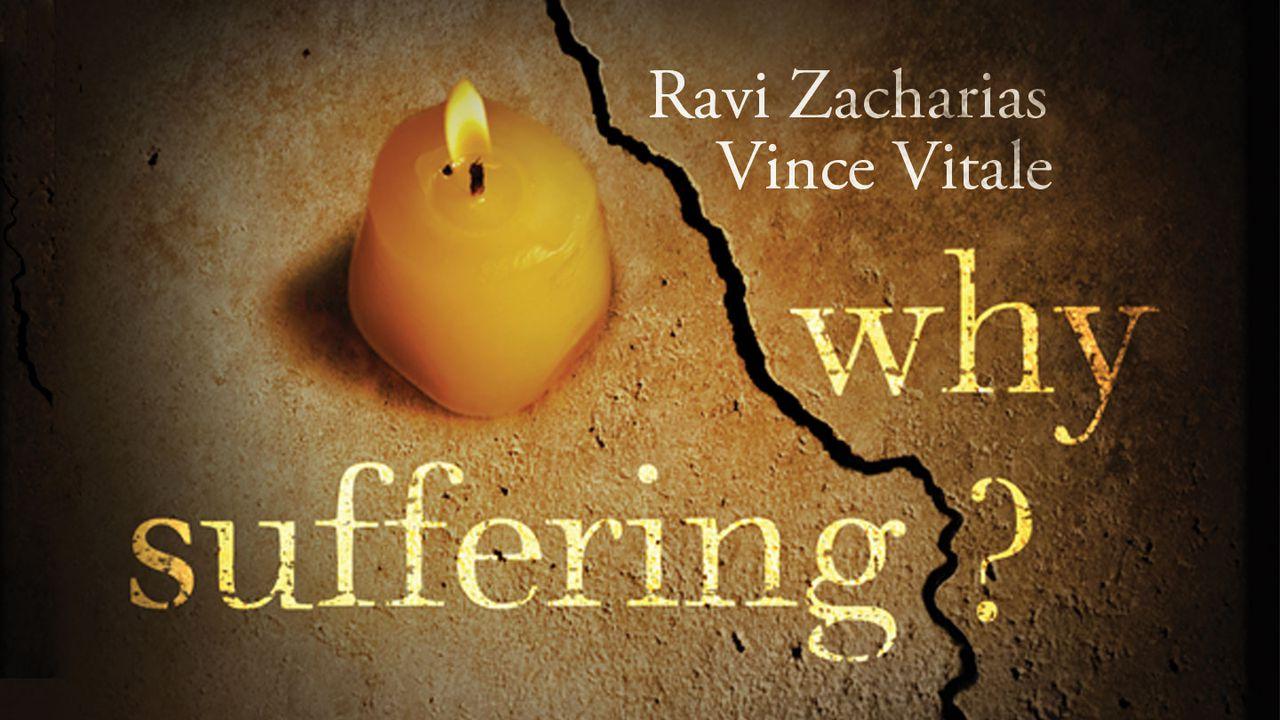Why SufferingMuestra

A God We Can Trust
Eleonore Stump writes that “in virtue of being desired by the most powerful and most good being possible, a human person is desirable by the ultimate of all standards. By this standard, then, all shame has to fall away.”[1]
The objection that Jesus’ death on our behalf is unjust rests on the assumption that Jesus’ death is disconnected from us, irrelevant to our sin, just some stranger serving our jail sentence. But that’s only true if Jesus is in fact a stranger to us. If we’re indifferent to Jesus, if we have no interest in following Him, then His death is the death of a stranger, someone we don’t know serving our sentence.
But if we love Jesus, if we put our trust in Him and choose to follow Him, then when we stand beneath the cross and see the death of the person we love most resulting from our sin, just consequences have occurred. Then the cross is anything but disconnected; it has every relevance to us. Justice has been fulfilled.
The cross is where God protests that it’s not okay to just look the other way when people are beaten, and abused, and enslaved—that there must be serious consequences for sin. But the cross is also where God declares that He cannot stand to see any of those He has brought into this world lose their lives to those consequences. And so He loses His own life, and in doing so offers to every person a life that can never be lost.
More amazing still is the fact that God responds this way even though we haven’t just been fighting with each other, but with God himself. Every time we throw a punch—whether literally, or by words, or by indifference—we fight against God too, because we throw a punch at someone He loves. And our fighting is also directly against God, because so often we prefer to be our own gods—when we know what God wants, when we know that He knows best, and yet we deny Him anyway. The deepest betrayal is sin against the one who loves you best. And though time and again we deny Him, at the cross God chooses us. Love at its very best.
Justice demands judgment. Love demands mercy. Only at the cross of Jesus do we find both. Only at the cross do we find perfect love and perfect justice in perfect intersection. That is why Jesus came. That is why Jesus was ready to die. Jesus died for our suffering; He died for our sin; and finally, He died for our shame.
Naked on the cross, Jesus took on Himself every time we’ve been mocked, every time we’ve been spat on, every time we’ve failed. He took on Himself every time we’ve been abused, exposed, ignored, overlooked. When He put on human flesh and a human nature (John 1:14; Phil. 2:5–8), Jesus literally clothed Himself in all of it.
Some object that the idea of a divine person dying is shameful. They are correct. It’s full of our shame. Jesus wore our shame so that, as the Bible says, “Anyone who believes in him will never be put to shame” (Rom. 10:11). On the cross, Jesus proclaims that when you put your trust in Him you don’t have to be ashamed of whatever you’ve been through, because He’s been through it too. He hung vulnerable and rejected in a shameful way so that we would never again need to live in shame.
The cross is God’s public proclamation to the whole world that you are deeply loved and eternally desired—as Paul puts it, created to be God’s poiēma, His poem, His “masterpiece” (Eph. 2:10). And therefore shame has to fall away because God’s standard—the ultimate standard—shames all of the false standards that threaten to shame us. And by the measure of God’s standard—the standard won by Jesus on the cross—God disrobes our shame, and He dresses us in acceptance, confidence, honor, and inheritance.
If we understand what happened on the cross, we will understand why we can trust God amidst suffering. In both how He died and why He died, Jesus made to us an extravagant and unparalleled display of love (John 15:13).
What kind of God would come and die? A God of love. A God we can trust.
Reflection Questions
- Why does the manner of Christ’s death on the cross, and God’s extravagant display of love in that act, set us free from shame and guilt? If you still carry these around in your heart, will you go to Jesus and lay them before His cross?
- The apostle John wrote that the “world and its desires pass away, but whoever does the will of God loves forever” (1 John 2:17). The cross reveals that we’re desirable by God’s ultimate and lasting standards, the standards of the most good and most powerful being possible. Why should that prompt within us a desire for the things of God over the things of this world?
Bible Verses
- Romans 10:11
- Psalm 25:3
- Isaiah 54:4; 61:7
- John 1:14
- Philippians 2:5–8
- Hebrews 2:5–18
- Ephesians 2:10
- John 15:13
Citation
[1] Eleonore Stump, Wandering in Darkness: Narrative and the Problem of Suffering (Oxford: Clarendon, 2010), 171.
Escritura
Acerca de este Plan

This study is based on the book WHY SUFFERING? written by Christian apologist Ravi Zacharias and Vince Vitale, Dean of the Zacharias Institute, It is written for the Christian struggling for an answer, the seeker who thinks suffering disproves God’s existence, and the sufferer who needs a glimpse of a loving God.
More
Planes relacionados

El Encuentro Que Transforma

Un Día a La Vez

Una Oración Bíblica Por Los Esposos

La Compasión Por Encima De La Crítica: Ver La Ansiedad Desde Una Nueva Perspectiva

Transformados a su imagen

¿Qué Nos Pasó En El Edén?- Psicología De La Caída

El Rey Que Se Hizo Siervo

Eso Tiene Sentido: Una Reflexión Amable Sobre Los Orígenes De La Adicción, Cómo Entenderla Y Cómo Ser Indulgente Consigo Mismo

Salmo 91
